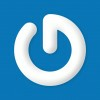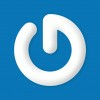Osteopathic medical student Brian Sullivan was a member of Des Moines University’s largest and most interprofessional global health service team to date: More than 35 individuals – including students from five DMU programs and Drake University’s pharmacy program as well as faculty, clinicians and a social worker – spent March 16-24 providing health care, education and information to hundreds of under-served people in Honduras. It was DMU’s second service trip to the Central American nation, organized in partnership with Global Brigades, the world’s largest student-led global health and sustainable development organization.
Day 5:
The next morning on the way to the school, there was no sign that it had rained the night before. Even the dirt roads were dry. During the bus rides we were able to enjoy the mountainous terrain. Outside of the larger towns and cities, the country side is very raw; many of the roads were not paved, very few cars were seen, horses and cows were prevalent and it wasn’t out of place to see people bathing and washing clothes in rivers. The country side was undisturbed and life seemed much simpler. The people we passed were all very friendly, waving and smiling at the brigadiers on the buses. It seemed they spent the majority of their time outside enjoying the company of each other. They might not have the distractions we have in the States, such as Xbox or iPad, but they spend their downtime talking and enjoying each other’s company. This is very admirable and something we tend to neglect when watching our TV shows.
When we arrived at the clinic, patients were lined up ready for another day. We had some that were invited back because their glucose was very high (>400). Others were new patients who had traveled to El Chichicaste for healthcare.
Triage was the area that had slowed us down on previous days so we loaded it up with students. Students in triage were the first to encounter the patients. They would take the blood pressure of anyone over 35 or those who had a history of hypertension. Temperature, pulse, respiration and weight were also measured. Afterwards the patient would sit and talk with a translator about the reason they had come to the clinic. Many of the patients had not seen a physician in a year, so they would tell the triage everything that had hurt in the past year. Triage was assigned the task of questioning and finding the most important disorders within the past year. The translators were excellent at getting to the major problems and sending the patient to the correct area.
The dental brigade performed tooth extractions and really helped alleviate pain in individuals. It was very educational as well, allowing dental students to inject local anesthetic, perform tooth extraction and further practice suturing. The dental room was not well lit, so dentist and students wore headlamps to allow for better visibility. The dental brigade would see fifty patients every day.


